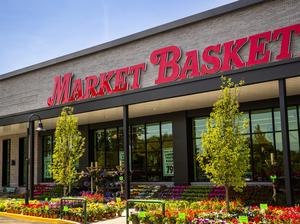
A new study from the global small business accounting platform Xero found that some states have done a much better job at retaining small business jobs than others through the coronavirus pandemic.
States like New York, Oregon, and Washington have seen their small business jobs decline 13.7%, 10.4%, and 8.1%, respectively, since February of 2020.
Meanwhile, states like Wyoming, Nevada and Rhode Island saw small business jobs grow 21.9%, 6.6% and 6.5%, respectively. Rhode Island Inno caught up with Louise Southall, an economist at Xero to discuss the findings of the study.
Why are small business jobs in states like New York, Oregon, and Washington down, but up in states like Rhode Island, Wyoming and Nevada? There doesn’t seem to be an obvious pattern.
Since the start of 2020, Xero has been tracking the impact of the pandemic on small businesses across the major countries where we operate. Based on Xero's own data and our interactions with our customers, we can see that there isn't one particular characteristic that determines the impact on small businesses and jobs. Regardless of the country or industry base or geographic location, whether urban vs. suburban, we have observed three key factors that influence small businesses and their capacity to hire people.
One is the extent of COVID-19 cases. We have repeatedly seen in multiple countries and regions that the economic situation does not sustainably improve until the health crisis is under control. Only then can health regulations ease and people will have more confidence to leave their homes, shop, dine out and return to workplaces. The second is the extent of government support provided to small businesses. Both national and state governments across many countries have offered various assistance packages and grants to small businesses. For the first time, there has been widespread use of wage subsidy programs to keep people connected to a small business even if they have no hours to work such as the Paycheck Protection Program. Uptake of these have been critical in ensuring that small businesses can get through those restricted business periods.
The third is the extent of public health restrictions. Public health restrictions are obviously critical in controlling the virus and limiting hospitalizations and loss of life, but they do impact small businesses and their capacity to employ. This is particularly the case for customer-facing industries such restaurants, cafes, hospitality, cinemas, gyms and theatres. These tend to be the first businesses to close and the last to open around restrictions.
Do you think the numbers will stay like this or is it bound to go back to the way it was?
The three factors I mentioned above will continue to influence the performance of small businesses through the economic recovery phase. The pace of rebuilding jobs will be determined by virus case numbers, which are improving now with vaccination programs, the need for new public health restrictions and the extent of government support.
What can states that are struggling do to lure more small businesses in a post-pandemic world, and what can the states that have attracted more small businesses do to retain them and keep the momentum going?
As small businesses start to rebuild, ongoing government support will be critical. The type of support may change from direct payments and wage subsidies to support around encouraging business resilience through adopting digitization, expanding into new markets and future-proofing small businesses to prepare them for future challenges.








